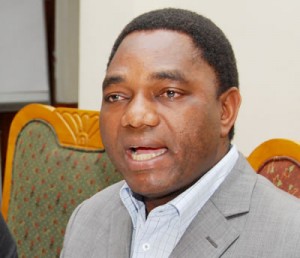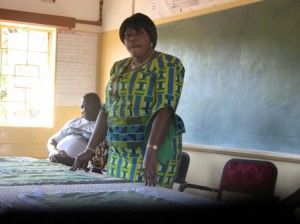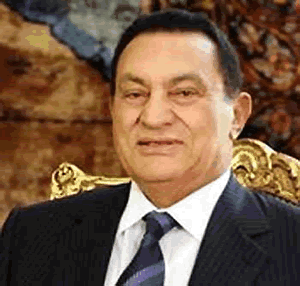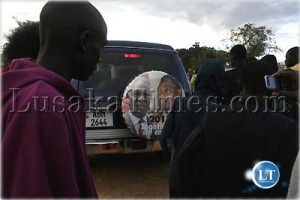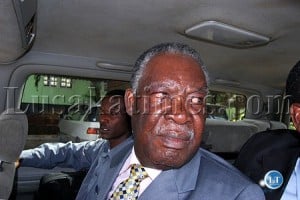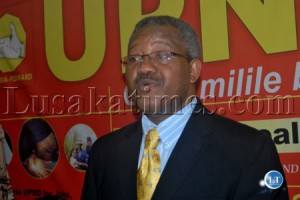
By Elias Munshya wa Munshya
Zambia has produced no engineer with more impeccable engineering credentials than Professor Clive E. Mulubwa Chirwa’s. From jet engine engineering to car aerodynamics, Professor Chirwa’s engineering credentials are among the best in the whole world. But the dear professor should quickly realise that being successful at mechanical engineering is quite different from doing political engineering. Nothing demonstrates Professor Chirwa’s misunderstanding of politics than the proposal he has made about the way forward for the so called UPND/PF pact. According to this “Chirwa Plan”, the Pact can easily resolve its “presidency” impasse by having Michael Sata become the Pact’s presidential candidate while Hakainde Hichilema should accept the position of Vice-President. Once the Pact forms government the two parties should then divide the spoils of cabinet on a 6 to 4 ratio with the PF having a majority of cabinet portfolios. It is my argument that the Chirwa Plan cannot work for several reasons.
The Chirwa plan ignores simple constitutional provisions. In Zambia’s constitutional character, the power of State subsists in the office and person of the President of the Republic. As Chief Executive Officer of both the government and the State, it is the sole prerogative of the President to both appoint and disappoint ministers subject to the provisions of the law. In so doing, the president cannot be bound by parliament or by his own party or by a pact or indeed by a coalition of parties as the case may be. Once elected and sworn into office, the president is expected to act according to his best judgment and wisdom.[pullquote]It is rather surprising that to ensure compliance the Chirwa Plan expects the two leaders to sign a document detailing the terms of this political coalition. This document signing should be witnessed by the church and other non-governmental organizations. I would be very anxious to find out what legal effect such an agreement will have. Will it be a contract or a treaty? Just from the Barotseland Agreement of 1964, Zambia has a clear precedence of not adhering to such contracts or agreements[/pullquote].
Additionally, in our republican political system, the presidency does not derive its power from political parties as represented in a parliament, but rather directly from the electorate. As such, a coalition on the lines of the British parliamentary system, as an example, is constitutionally untenable in Zambia. When the British, the Canadians, or South Africans go to elections they vote for a parliament and it is from parliament where the Head of Government is chosen from. In the case of Zambia, it is the direct universal suffrage that elects a president. It is, therefore, difficult in Zambia to form a parliamentary ruling coalition of parties because a president cannot constitutionally be bound by such a coalition in exercising his prerogative to choose his government and other officers of the State. In Zambia, parliament or parties in parliament do not determine who or how the president should serve the nation.
It is rather surprising that to ensure compliance the Chirwa Plan expects the two leaders to sign a document detailing the terms of this political coalition. This document signing should be witnessed by the church and other non-governmental organizations. I would be very anxious to find out what legal effect such an agreement will have. Will it be a contract or a treaty? Just from the Barotseland Agreement of 1964, Zambia has a clear precedence of not adhering to such contracts or agreements. Besides, Zambians do not expect their president to choose his cabinet from a gathering of church leaders and NGO’s. We are not a kangaroo nation. We choose the president and we expect him to exercise his wisdom and prerogative. We would not want a president whose presidential prerogatives are determined not by national interests but by the interests of Kabulonga based NGOs. Zambia is bigger than Kabulonga.
In the event that Zambians elected Michael Sata to the presidency, under the current constitution, Sata will have no obligation to honour the Chirwa Plan. The constitution will indeed be on the president’s side and the so called Chirwa plan can be dishonoured on the first day a president Sata takes office. The Chirwa plan would fail for lack of constitutional effect.
The Chirwa plan quite blatantly ignores the political significance of UPND and the rise in the popularity of Hakainde Hichilema. If by-elections are to be used as predictors of political patterns, it is clear that HH does have a solid shot at the presidency. HH has shown meteoric rise in his popularity since the last elections. He has managed to sweep nearly all of the by-elections in the critical province of Northwestern, and he is on the verge of breaking through in Western Province. The Chirwa plan does not take this important element into account.
By giving Sata the Pact’s presidency, the Chirwa plan ignores the significance of the Southern Province vote. Regardless of what many want to believe about Zambian politics, Southern Province still represents a significant voting bloc. This voting bloc is clearly faithful to HH and his UPND. However, this faithfulness to HH should not and cannot transfer to Michael Sata. If HH goes ahead and succumbs to Sata, Southern Province is very likely to break for the MMD and its candidate Rupiah Banda. The MMD is relishing this chance. They are just waiting for the Chirwa Plan to be implemented and VJ Mwaanga and several southern MMD sympathisers will swing into action to convince the people of Kalomo, Choma and Namwala that HH is a sell-out. HH is not dull and he understands very well where the ordinary folk in Mapatizya stand with regard to Michael Sata.
There is no doubt that many in the Pact have been anxious about its future and relevance. It has been my position that a Pact of independent political parties working together to remove a ruling party is good just for that purpose. However, it cannot be good for governing because the Zambian system cannot tolerate such coalitions. If the UPND and the PF were serious about uniting both before and after elections they should have disbanded their respective parties and gone to a convention to choose a presidential candidate.
But the PF and the UPND are no fools. They knew exactly what they wanted in the Pact. They knew exactly that while they showed a pretended appearance of unity, HH and Sata were not as united as we thought. But as for the Chirwa Plan it is as mythical as the myth that some continue to perpetuate about the existence or even relevance of the UPND and PF Pact.


